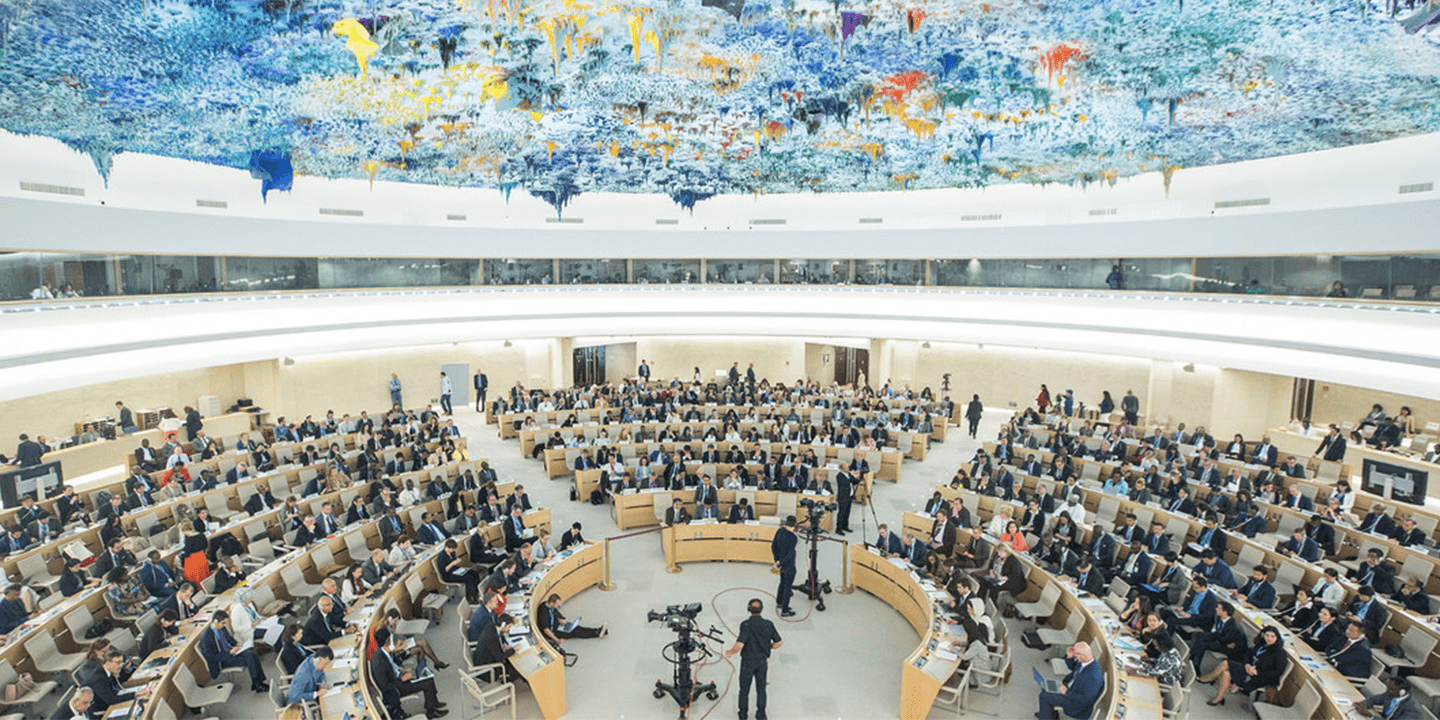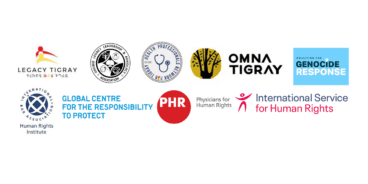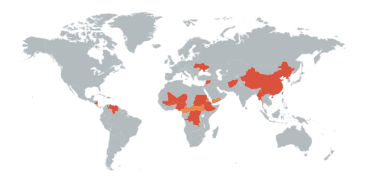

Ethiopia: Extend the Expert Commission’s mandate
To Permanent Representatives of Member and Observer States of the United Nations (UN) Human Rights Council (Geneva, Switzerland)
Excellencies,
Ahead of the Council’s 51st regular session (12 September-7 October 2022), we, the undersigned non-governmental organizations, are writing to urge your delegation to support a resolution that reflects the human rights situation in Ethiopia and extends the mandate of the International Commission of Human Rights Experts on the country (ICHREE) for a year.
The Commission’s work is vital to ensure scrutiny of the situation in Ethiopia and advance justice, truth, and reparations for survivors, victims, and their families. We welcome the Commission’s initial oral update to the Council, on 30 June 2022. We stress, however, that the Commission needs more time and resources to fulfil its mandate.
A mandate extension is warranted on both technical and substantive grounds. First, the ICHREE will not have completed its work by the Council’s 51st session, which is set to take place less than a year after the Council’s special session on Ethiopia and only a few months since the Commission established its secretariat and became operational.
Second, the Commission needs time to complete its mandate given the magnitude, gravity, and scope of violations and abuses, some of which might constitute crimes under international law, committed by all parties to the conflict in Ethiopia and the significant transitional justice, reconciliation, and healing needs, which the ICHREE is mandated to address.
Moreover, investigations ensuring respect for a gender perspective and a survivor-centred approach, including regarding conflict-related sexual violence, requires methodical preparation, consultation, and witness protection. The work of the ICHREE is complicated by the lack of full cooperation by the Ethiopian authorities and their failure to facilitate access to the relevant territory.
While the Ethiopian Government established an Inter-Ministerial Task Force in response to the abuses documented in the report of the Joint Investigation by the Office of the UN High Commissioner for Human Rights (OHCHR) and the Ethiopian Human Rights Commission (EHRC), the efforts made so far by the government do not match the scope and breadth of the violations committed since the beginning of the conflict. We underscore that domestic investigations and accountability, and international efforts, are not mutually exclusive but complementary. The ICHREE plays a vital role in this regard.
The human rights situation in the country requires the Council’s ongoing attention. Violations of international humanitarian law and human rights violations and abuses, some of which might constitute crimes under international law, include deliberate attacks on civilians, extrajudicial executions, enforced disappearances, arbitrary detentions, acts of torture and ill-treatment, forced displacement, sexual and gender-based violence, attacks on aid workers, and destruction and looting of public and private property. In its oral update to the Council, on 30 June 2022, the Commission said it was “alarmed that violations and abuses of international human rights, humanitarian and refugee law […] appear to be perpetrated with impunity even now by various parties to the conflict in Ethiopia. This spread of violence and the dire humanitarian crisis made worse by lack of access in some areas by the civilian population to humanitarian assistance including medical and food aid, obstruction of aid workers and persistent drought, exacerbates the suffering of millions of people in Ethiopia and the region.”
On 3 November 2021, the OHCHR and the EHRC released a joint report that found evidence of widespread violations of international human rights, humanitarian, and refugee law by all parties to the conflict in Tigray. The joint investigation team (JIT) also found that many of these violations and abuses may amount to war crimes and crimes against humanity.
Violations are ongoing. For over a year, federal forces have effectively besieged Tigray. While allowing some supplies, notably food, to reach the region’s capital, Mekelle, since the declaration of a humanitarian truce, in March 2022, access to other supplies, including fuel, remains limited, preventing the distribution of food and basic necessities. Communications, banking, and electricity remain blocked. In Western Tigray, Amhara forces and officials have conducted an ethnic cleansing campaign against Tigrayans that might amount to crimes against humanity and war crimes. Hundreds, if not thousands, of Tigrayans remain arbitrarily detained there in life-threatening conditions.
In the Amhara and Afar regions, Tigrayan forces summarily killed civilians, committed widespread sexual violence, and pillaged civilian infrastructure. In two areas of the Amhara region, fighters affiliated with the Tigray People’s Liberation Front (TPLF) deliberately killed dozens of people, gang-raped dozens of women and girls, and looted private and public property.
Conflict and unrest in several parts of Ethiopia have caused mass displacement, destruction of social and economic infrastructure, and a humanitarian crisis that increases food insecurity and the risk of famine. In an 8 November 2021 communiqué, the African Union (AU) Peace and Security Council expressed its “deepest concern over the dire humanitarian situation” resulting from the violence, welcomed international and regional efforts towards cessation of hostilities and peaceful resolution of the conflict, and expressed “serious concern” over all violations and abuses of human rights.
In-depth independent investigations into gross violations committed in the period before 28 June 2021, when the Ethiopian Federal Government announced a unilateral ceasefire and withdrew from the Tigray region, remain critical. Investigations and international scrutiny are all the more important since the government has intensified its attacks against, and restrictions on the work of, independent media and civil society. Despite the recent lifting of the state of emergency, ethnically motivated arrests of individuals, as well as the targeting of journalists, has continued. At the time of writing, at least nine journalists remain in arbitrary detention.*
We regret the decision of the General Assembly’s Fifth Committee to not grant the ICHREE sufficient resources to enable its full staffing (20 staff members) and stress the need for the ICHREE to have sufficient staff to carry out its mandate. In particular, the ICHREE should be provided with sufficient funds to fill key staff positions that were in its original budget request: Legal Adviser, Media Adviser, Human Rights Officer/Investigator, Security Officer, Programme Management Officer, and Interpreter. Insufficient resources and the lack of key expertise can put at risk the preservation of evidence in accordance with the highest legal standards, and will slow the ICHREE’s work.
At its 51st session, the Council should adopt a resolution that extends the Commission’s mandate for a year to allow it to continue its work and address the magnitude, gravity, and scope of violations and abuses, some of which might constitute crimes under international law, committed by all parties to the conflict in Ethiopia and the country’s significant justice, reconciliation, and healing needs.
We thank you for your attention to these pressing issues and stand ready to provide your delegation with further information as required.
Sincerely,
- Amnesty International
- DefendDefenders (East and Horn of Africa Human Rights Defenders Project)
- Global Centre for the Responsibility to Protect
- Human Rights Watch
*See Committee to Protect Journalists (CPJ), Ethiopia updates, https://cpj.org/africa/ethiopia/ (accessed on 19 July 2022). See also Ethiopian Human Rights Defenders Center (EHRDC), “The Ethiopian government should end the wave of disappearance and unlawful arrests of Human Rights Defenders, Journalists, and Activists,” July 2022, https://ethdefenders.org/the-ethiopian-government-should-end-the-wave-of-disappearance-and-unlawful-arrests-of-human-rights-defenders-journalists-and-activists/ (accessed on 19 July 2022).

